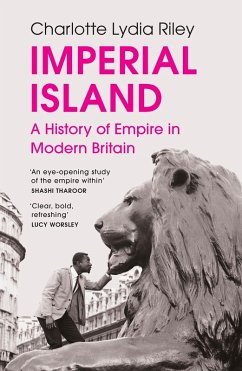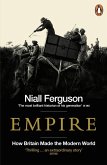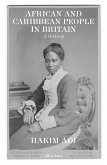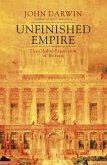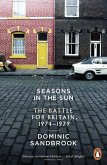Imperial Island shows how empire and its ever-present aftermath have divided and defined Britain over the last seventy years.
'Masterful ... you won't look at Britain in the same way ever again' OWEN JONES
After the Second World War, Britain's overseas empire disintegrated. As white settlers from Rhodesia returned home to a country they barely recognised, Commonwealth citizens from Asia and the Caribbean migrated to a motherland that often refused to recognise them. Race riots erupted in Liverpool and Notting Hill even as communities lived and loved across the colour line. In the 1950s and 60s, imperial violence came home too, pervading the policing of immigrant communities, including their sex lives. In the decade that followed, a surge of support for the far-right inspired an invigorated anti-racist movement.
These tensions, and the imperial mindset that birthed them, have dominated Britain's relationship with itself and the world ever since: from the simplistic moral equation of Band Aid to the invasion of Iraq, in the tragedy of Stephen Lawrence and the opening ceremony of the 2012 Olympics, we see how Britain's contradictory relationship with its past has undermined its self-image as a multicultural nation.
Imperial Island tells a story of immigration and fractured identity, of social strife and communal solidarity, of people on the move and of a people wrestling with their past. It is the story that best explains Britain today.
'An eye-opening study of the empire within' SHASHI THAROOR
'Clear, bold, refreshing' LUCY WORSLEY
'Masterful ... you won't look at Britain in the same way ever again' OWEN JONES
After the Second World War, Britain's overseas empire disintegrated. As white settlers from Rhodesia returned home to a country they barely recognised, Commonwealth citizens from Asia and the Caribbean migrated to a motherland that often refused to recognise them. Race riots erupted in Liverpool and Notting Hill even as communities lived and loved across the colour line. In the 1950s and 60s, imperial violence came home too, pervading the policing of immigrant communities, including their sex lives. In the decade that followed, a surge of support for the far-right inspired an invigorated anti-racist movement.
These tensions, and the imperial mindset that birthed them, have dominated Britain's relationship with itself and the world ever since: from the simplistic moral equation of Band Aid to the invasion of Iraq, in the tragedy of Stephen Lawrence and the opening ceremony of the 2012 Olympics, we see how Britain's contradictory relationship with its past has undermined its self-image as a multicultural nation.
Imperial Island tells a story of immigration and fractured identity, of social strife and communal solidarity, of people on the move and of a people wrestling with their past. It is the story that best explains Britain today.
'An eye-opening study of the empire within' SHASHI THAROOR
'Clear, bold, refreshing' LUCY WORSLEY
Dieser Download kann aus rechtlichen Gründen nur mit Rechnungsadresse in A, B, BG, CY, CZ, D, DK, EW, E, FIN, F, GR, HR, H, IRL, I, LT, L, LR, M, NL, PL, P, R, S, SLO, SK ausgeliefert werden.
Riley's absorbing new book ... [is] a history of modern multicultural Britain and the myriad ways in which it has been shaped by empire and imperialism ... Riley's skills as a social historian are demonstrated to best effect in her use of personal testimonies, oral histories and popular culture sources to bring to life the everyday experiences of new migrants ... The book is particularly rich on civil society campaigns against racism, and at documenting the political role played by the anti-war left in modern Britain ... dexterously handled and carefully sourced Financial Times

